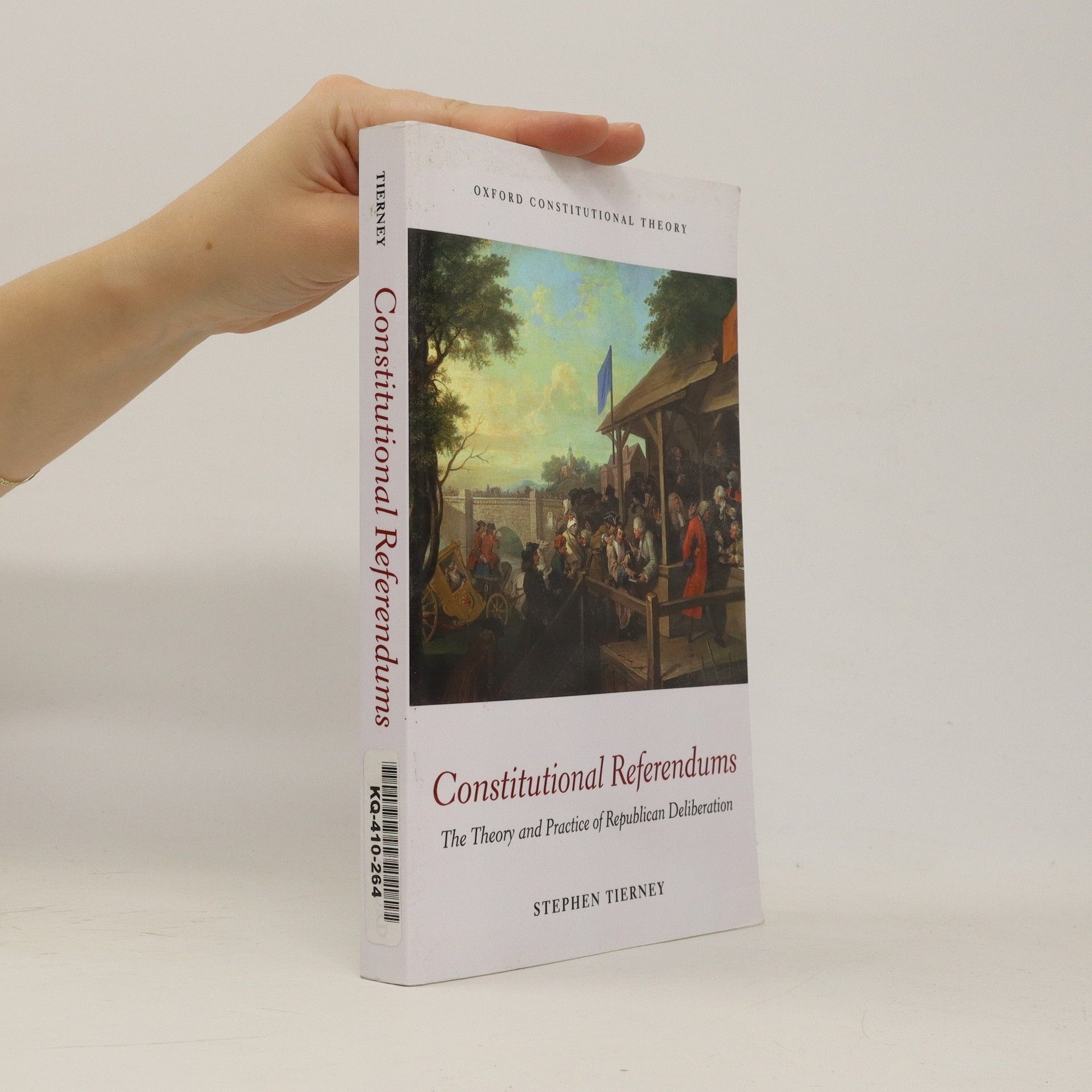In his second book, Tierney argues that the purpose of education must move to the heart of the educational debate. Purpose will significantly influence what schools and the education system as a whole will do next.
Stephen Tierney Knihy



Leadership: Being, Knowing, Doing
- 240 stránek
- 9 hodin čtení
Stephen Tierney seeks to help leaders explore their own capabilities and potential. Leadership can be learnt. The three Ways - Being, Knowing and Doing - represent a mirror to help leaders reflect upon and improve their practice. In turn, current leaders are called upon to accept the responsibility to grow the leaders of the future.
Constitutional referendums : the theory and practice of republican deliberation
- 375 stránek
- 14 hodin čtení
The use of referendums has significantly increased globally over the past thirty years, particularly for resolving constitutional issues, even in nations with minimal direct democracy traditions. This book is the first by a constitutional theorist to explore the implications of this trend for constitutional democracy in a globalizing context, where traditional notions of sovereignty and constitutional authority are being challenged. It identifies four key constitutional processes involving referendums: the founding of new states, the creation or amendment of constitutions, the establishment of sub-state autonomy in multinational states, and the transfer of powers from European nations to the EU. As a constitutional theory study, it examines the challenges this trend poses not only for specific constitutional frameworks, typically based on representative democracy, but also for constitutional theory as a whole. The primary focus is on the interplay between referendums and democracy, addressing common criticisms from democratic theorists and utilizing civic republican and deliberative democracy theories to assess whether well-designed constitutional referendums can enhance citizen engagement in constitution-making. With referendums now integral to modern constitutionalism, the book seeks to answer how their implementation can be made more democratic amid ongoing constitutional changes.